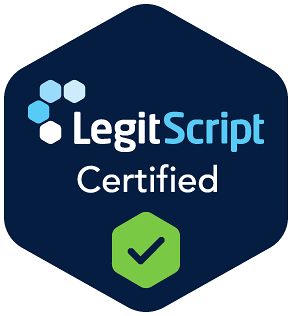Attention-Deficit/Hyperactivity Disorder (ADHD) affects many adults in Canada. While stimulant medications remain the standard treatment, more people are turning to natural supplements. They hope to manage symptoms more safely or naturally. But what does the science actually say?
This article compares ADHD supplements and medications using real research. It shows what works, what doesn't, and what Canadians should consider before choosing a treatment plan.
What Are ADHD Medications?
ADHD medications fall into two main types: stimulants and non-stimulants.
Stimulants
These include drugs like methylphenidate and amphetamines. They are the most common ADHD treatments in Canada. Some 70% of patients respond well to them. Stimulants help manage ADHD symptoms, such as short attention span, impulsive behavior, and hyperactivity.
Pros:
- Fast-acting
- Strong clinical evidence
- Effective for many patients
Cons:
- Side effects like poor sleep, loss of appetite, or anxiety
- Some people may not tolerate them well
- May not be effective in managing co-existing anxiety and/or depression symptoms
- Risk of abuse and dependency
Non-Stimulants
Options like atomoxetine or guanfacine are slower to act. They may be used if someone doesn't respond well to, does not tolerate, or should not use stimulants.
Pros:
- Lower risk of sleep and appetite problems
- Can help with anxiety or tics
- Not a controlled substance in Canada
- May help manage co-existing anxiety and depression symptoms
Cons:
- It may take several weeks to show the full effect
- It may not work as well as stimulants for some people
- May cause fatigue, dizziness, or mood changes
What Are ADHD Supplements?
Supplements are non-prescription products such as omega-3s, zinc, melatonin, iron, and herbs. Many are available in Canadian stores or online. Some people use them on their own. Others take them alongside medication.
But unlike drugs, supplements are not held to the same safety and testing standards. That's why it is important to understand which ones have evidence and which don't.
Do Supplements Work for ADHD?
Omega-3 Fatty Acids
Omega-3s, especially EPA (eicosapentaenoic acid), are the most studied supplement for ADHD. A meta-analysis of over 10 studies showed a small but real improvement in attention and behaviour in children and adults with ADHD. However, the effect is much weaker than stimulant drugs. Experts suggest 1–2 grams per day, with a higher EPA content, may help mild symptoms or be added to medication.
Melatonin
Melatonin does not reduce core ADHD symptoms. But it can help with sleep problems, especially sleep-onset insomnia. Many adults with ADHD struggle to fall asleep, which leads to poor focus during the day. Melatonin helps with that, but does not affect impulsivity or inattention. Short-term use is considered safe. A common dose is 3–6 mg taken 30 minutes before bed.
What About Minerals?
Zinc
Zinc helps the brain use dopamine, which is important in ADHD. Some studies in countries with high zinc deficiency (like Turkey or Iran) show small improvements when zinc is added to ADHD treatment. But most Canadians are not zinc-deficient. In those cases, trials found no clear benefit. High doses of zinc can be harmful. So it is not recommended unless a doctor finds a clear deficiency.
Iron
Iron is needed for dopamine production. In one small trial, children with low iron levels improved with supplements. But there is no solid evidence for people with normal iron levels. Iron can cause side effects and even toxicity if overused.
Magnesium
Low magnesium may affect mood and behaviour. But current studies are weak. There is no reliable trial showing that magnesium helps ADHD. Too much can cause nausea, cramps, or even more serious problems.
Are Herbal Remedies Worth Trying?
Many adults try herbs, hoping for a natural fix. Some common ones include:
Ginkgo Biloba
One study found ginkgo was less effective than methylphenidate, the standard drug. There was some minor improvement, but not enough to recommend it. Ginkgo also raises the risk of bleeding, especially if taken with aspirin or other blood thinners.
St. John's Wort
Although it affects brain chemicals like dopamine and norepinephrine, a strong study showed no benefit in ADHD symptoms. It also has many drug interactions, including antidepressants, birth control, and ADHD medications. It may increase the risk of serotonin syndrome.
Pycnogenol (French Pine Bark Extract)
One small study showed improved attention in children. But results were not strong across all rating scales. More research is needed before recommending it. Safety data is also limited.
How Do Supplements Compare to Medication?
| Category | Supplements | Medications |
|---|---|---|
| Effect Size | Small to modest (if any) | Large and reliable |
| Speed | Weeks to months | Often within hours or days |
| Evidence | Mixed or limited for most | Strong clinical trials |
| Safety | Mostly safe, but it depends on the product | Known risks, but well-studied |
| Accessibility | Over-the-counter | Prescription-only |
| Cost | Varies (some long-term use adds up) | Covered by many Canadian drug plans |
Are There Any Risks with Supplements?
Yes. Even natural products can cause side effects. For example:
- Zinc: High doses can cause nausea, stomach pain, and copper deficiency.
- Iron: Can lead to constipation or be toxic in excess.
- Magnesium: May cause cramps or diarrhea. High doses are dangerous.
- Ginkgo/St. John's Wort: Can interact with common drugs and lead to bleeding or serotonin overload.
Always speak with a healthcare provider before starting any supplement, especially if you are taking medication.
What Should Canadian Adults Do?
Here are a few practical steps:
- Start with a proper diagnosis. Many adults self-diagnose ADHD. See a doctor or psychologist for testing before starting any treatment.
- Talk to your doctor about options. If you're worried about medication side effects, ask about low doses or non-stimulant drugs. Some people do well with a mix of treatment types.
- Don't replace meds with supplements alone. There is no strong evidence that any supplement works better than standard drugs. Supplements may help a little or support sleep, but they are not a cure.
- Use high-quality products. If you try supplements, choose products from trusted brands with third-party testing.
- Watch for side effects. Even if something is natural, it's not always safe. Report any new symptoms to your doctor.
Final Thoughts
ADHD is a complex condition. Supplements like omega-3s and melatonin may support your health, especially if you have mild symptoms or trouble sleeping. But for most adults, medication remains the most effective treatment. The best results often come from a full plan: medication, healthy sleep, therapy, and safe supplements.
Attention-deficit hyperactivity disorder (ADHD) stimulant medications as cognitive enhancers - PMC
Nutritional Supplements for the Treatment of Attention-Deficit Hyperactivity Disorder - PMC
ADHD and Complementary Health Approaches: What the Science Says | NCCIH




